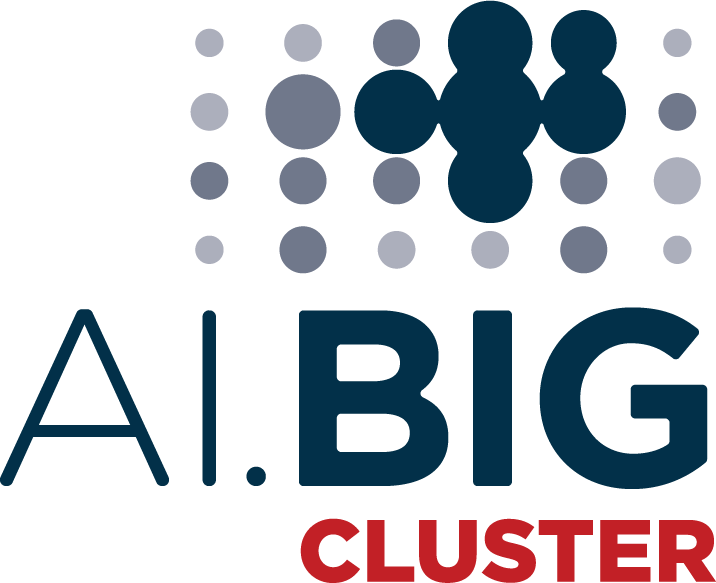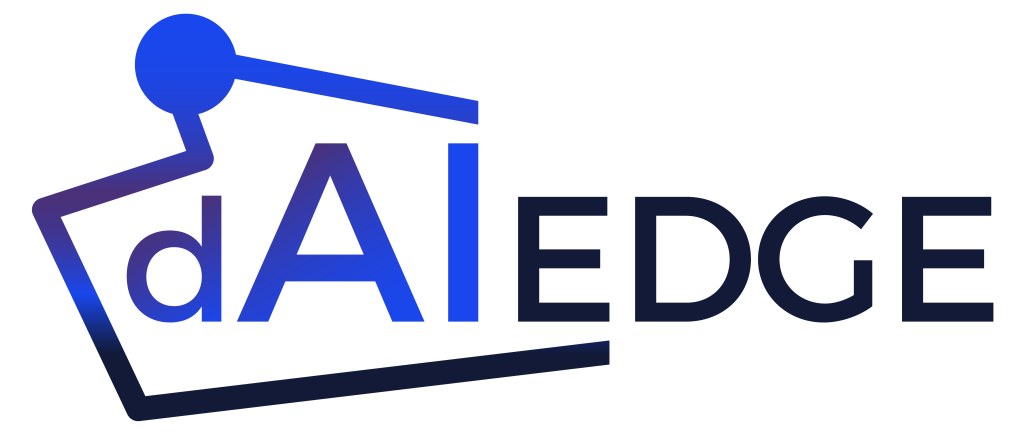DESCRIPTION
This short course on Cloud/Edge Computing for Deep Learning and Big Data Analytics provides a comprehensive overview and detailed presentation of advanced technologies utilized in distributed computational systems. Distributed computing plays a critical role in today’s data-driven landscape, enabling the processing of vast amounts of data efficiently and effectively across multiple nodes and locations. Through the distribution of computing tasks across systems, distributed computing amplifies scalability, reliability, and performance, proving indispensable for managing big data analytics, machine learning, and real-time processing tasks.
The course consists of six lectures and one workshop, covering some of the most popular tools necessary for distributed systems. Docker and Kubernetes streamline distributed computing by containerizing applications and automating deployment and management across clusters of servers. The Orion Context Broker facilitates seamless communication and data sharing between distributed systems, while Apache Airflow automates workflow scheduling, enhancing the efficiency of data processing pipelines. Together, these technologies empower organizations to leverage distributed systems fully, driving innovation and maximizing the value of their data. Additionally, a lecture on decentralized DNN application will provide a research-oriented view of multi-agent learning systems. Finally, the workshop will combine all the aforementioned tools into a practical application.
COURSE MATERIAL
Please find below the course material, including videos or/and PDF presentations of each lecture.
- Lorentzo Carnevale, Introduction to Cloud/edge computing
- Lorentzo Carnevale, Introduction to Containers with Docker
- Lorentzo Carnevale, Introduction to Kubernetes
- M. Palese, Introduction to Apache Airflow: Workflow Automation with DAGs and Tasks
- A. Filograna, M. Basile: Interoperability with JSON-LD and NGSI-LD via Orion Context Broker
PROGRAM
| Time (CET) |
Lecture |
Lecturer |
|
08:30-08:35 |
Welcome |
Prof. I. Pitas (AUTH) |
| 08:35-09:30 | Introduction to Cloud/edge computing | Prof. L. Carnevale (UNIME) |
| 09:30-10:30 | Introduction to Containers with Docker | Prof. L. Carnevale (UNIME) |
| 10:30-11:00 | Coffe Break | |
| 11:00-12:00 | Introduction to Kubernetes |
Prof. L. Carnevale (UNIME) |
| 12:00-13:00 | Introduction to Apache Airflow: Workflow Automation with DAGs and Tasks | Dr. M. Palese (Engineering) |
|
13:00-14:00 |
Lunch Break |
|
| 14:00-15:00 | Interoperability with JSON-LD and NGSI-LD via Orion Context Broker | Dr. A. Filograna, Dr. M. Basile (Engineering) |
| 15:00-16:00 | Decentralized DNN architectures |
Mr. A. Kaimakamidis (AUTH) |
| 16:00-16:30 | Coffe Break | |
| 16:30-18:30 |
Big Data Analytics example for Natural Disaster Management (Only for TEMA Partners) |
Ms. S. Sebbio, (UNIME), Mr. P. Giannouris, Mr. P. Mentesidis (AUTH) |
DATE
Tuesday, 19th March 2024.
LOCATION
Online event via ZOOM
Meeting ID: 928 2622 5947
Passcode: 405011
REGISTRATION
CS/ECE/EE/AI students/scientists, engineers as well as AI enthusiasts from other scientific disciplines having the necessary mathematical background are welcomed to register free of charge on a First-Come-First-Serve basis.
Please click to the following button:
For AIDA students* only: On the top of the above registration, we strongly encourage you to also enroll in this course through the AIDA website, so that a successful attendance of this course appears in the AIDA Certificate of Course Attendance.
*AIDA Students are PhD students/candidates or Postdoc researchers belonging to any AIDA member.
SUPPORTED BY
This short e-course is technically sponsored by TEMA, AIDA, AI4Media, AI.BIG cluster, AI4Europe, dAIEDGE, SIMAR R&D projects.
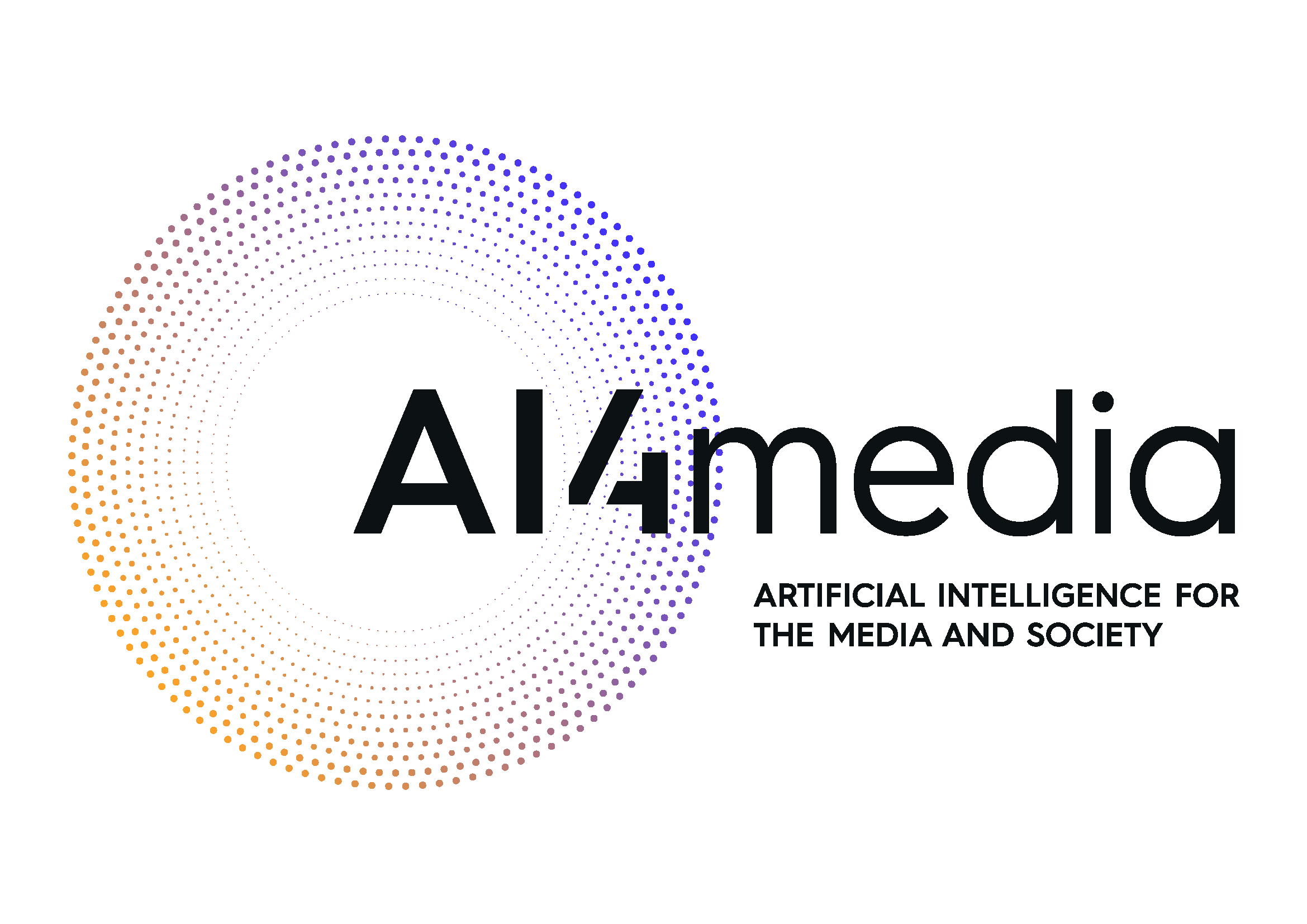


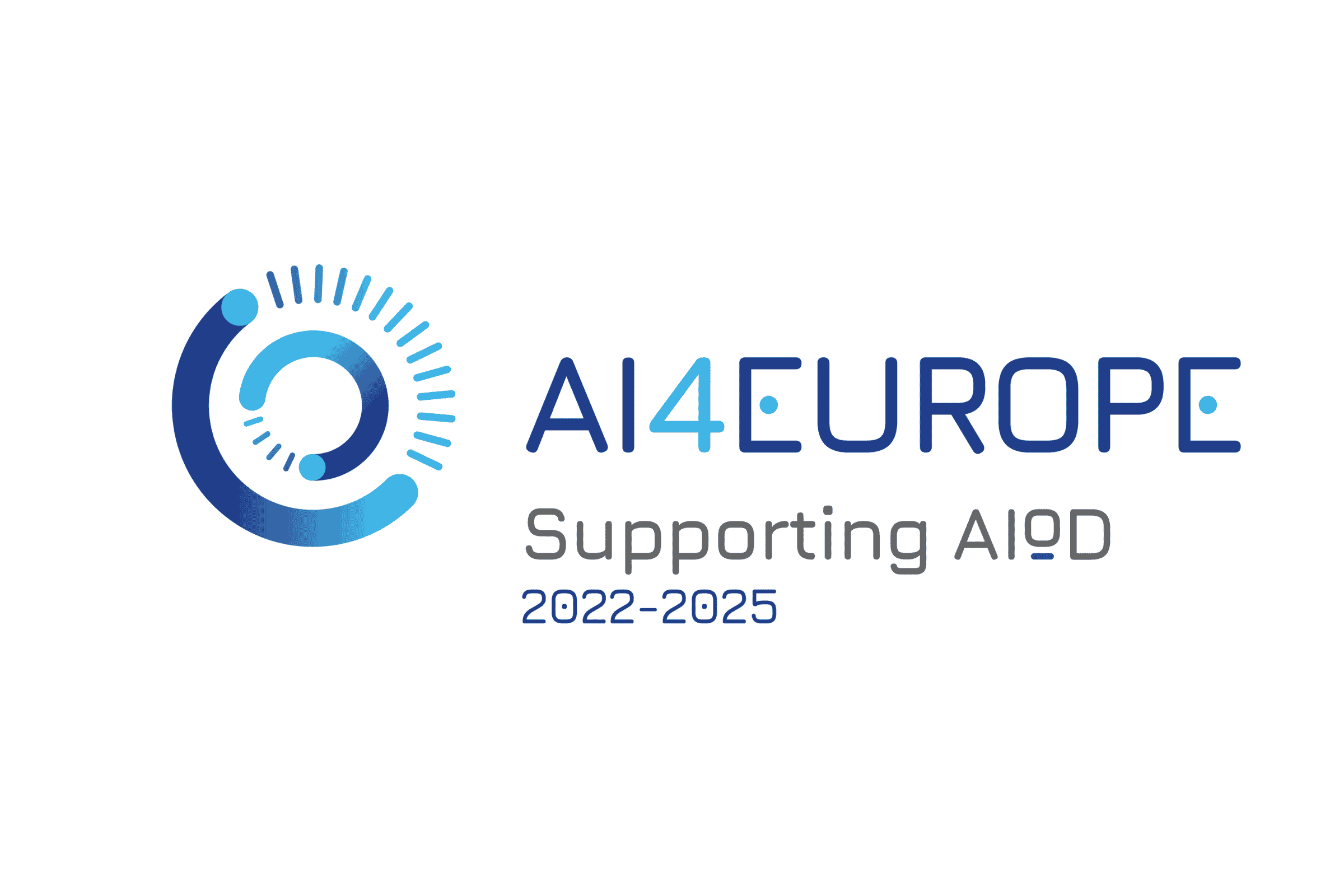
LECTURES
Lorentzo Carnevale: “Introduction to Cloud/edge computing”
Abstract: Cloud Computing during the time has gained concrete evidence to be a disruptive technology still in its full development. Many drawbacks of the Cloud have brought to improve many their crucial aspects, like performance, security and privacy, etc. Today Edge Computing try to deal with these implications to make them less problematic and much more feasible. Starting from the NIST definition (IaaS, PaaS and SaaS), the talk looks at the last decade of ICT evolution preparing the systems for new ICT challenges and implementations, like AI algorithms on top of them.
Mirco Palese: “Introduction to Apache Airflow: Workflow Automation with DAGs and Tasks”
Abstract: In today’s technological landscape, process automation has become a fundamental component for improving the efficiency and productivity of organizations. In this introductory conference on Apache Airflow, we will explore how to use DAGs (Directed Acyclic Graphs) together with tasks to orchestrate and automate workflows effectively.
During the session, we will delve into the concept of DAGs and how to use them to define workflows, organizing tasks into a logical and sequential flow. We will also explore the role of tasks within DAGs, explaining how they represent individual units of work and how they can be configured to perform specific actions, such as data processing, script execution, or notification sending.
We will also explore how Airflow simplifies the programming and execution of tasks, offering a wide range of predefined operators and the flexibility to create custom operators to meet the specific needs of the workflow. We will demonstrate how to define tasks within a DAG, schedule them, and monitor them to ensure reliable and smooth execution.
Matteo Basile, Antonio Filograna: “Interoperability with JSON-LD and NGSI-LD via Orion Context Broker”
Abstract: The short course aims to provide the foundation for understanding NGSI-LD Context Broker(s). The course will begin with a brief introduction to JSON-LD (JSON Linked Data) since it is the data format used by NGSI-LD. Next, there will be a brief mention of the history of NGSI-LD and who are the organizations that are currently using it. After that, the key components and aspects of an NGSI-LD Context Broker will be described. Specifically:
· NGSI-LD Tenant and Scope
· NGSI-LD Entity, Attributes and SubAttributes
· The @context field(s) – related to JSON-LD
· The possible formats and modes of presentation of a JSON-LD (e.g., normalized)
· The API exposed by an NGSI-LD Context Broker
· As an NGSI-LD Context Broker allows querying entities by filtering them for different attributes
· NGSI-LD Subscription
· Key Differences between NGSIv2 and NGSI-LD
· Short Demo about NGSI-LD Subscriptions
Anestis Kaimakamidis: “Decentralized DNN architectures”
Abstract: This lecture presents a novel Learning-by-Education Multi-Agent framework (LEMA) that facilitates communication and knowledge exchange among diverse Deep Neural Networks (DNN) agents,
undertaking the role of a student or teacher DNN by offering or absorbing knowledge respectively. The framework enables efficient and effective knowledge transfer among participating DNN agents while enhancing their learning capabilities and fostering their collaboration among diverse networks. The proposed framework addresses the challenges of handling diverse training data distributions and the limitations of individual DNN agent learning abilities. The LEMA framework ensures the exploitation of the best available teacher knowledge upon learning a new task and protects the DNN agents from catastrophic forgetting. The experiments demonstrate the LEMA framework functionalities on multiple teacher-student learning techniques and their integration with lifelong learning. Our experiments manifest the LEMA framework’s ability to maximize the accuracy of all participating DNN agents in classification tasks by leveraging the collaborative knowledge of the framework. The LEMA framework also addresses the problem of task-agnostic lifelong learning as DNN agents have no information on task boundaries.
LECTURERS AND TUTORS
Ioannis Pitas
 Prof. Ioannis Pitas (IEEE fellow, IEEE Distinguished Lecturer, EURASIP fellow) received the Diploma and Ph.D.Degree in Electrical Engineering, both from the Aristotle University of Thessaloniki, Greece. Since 1994, he has been a Professor at the Department of Informatics of the same University. He served as a Visiting Professor at several Universities. His current interests are in the areas of image/video processing, machine learning, computer vision, intelligent digital media, human centered interfaces, affective computing, 3D imaging and biomedical imaging. He is also chair of the Autonomous Systems initiative.
Prof. Ioannis Pitas (IEEE fellow, IEEE Distinguished Lecturer, EURASIP fellow) received the Diploma and Ph.D.Degree in Electrical Engineering, both from the Aristotle University of Thessaloniki, Greece. Since 1994, he has been a Professor at the Department of Informatics of the same University. He served as a Visiting Professor at several Universities. His current interests are in the areas of image/video processing, machine learning, computer vision, intelligent digital media, human centered interfaces, affective computing, 3D imaging and biomedical imaging. He is also chair of the Autonomous Systems initiative.
Lorenzo Carnevale
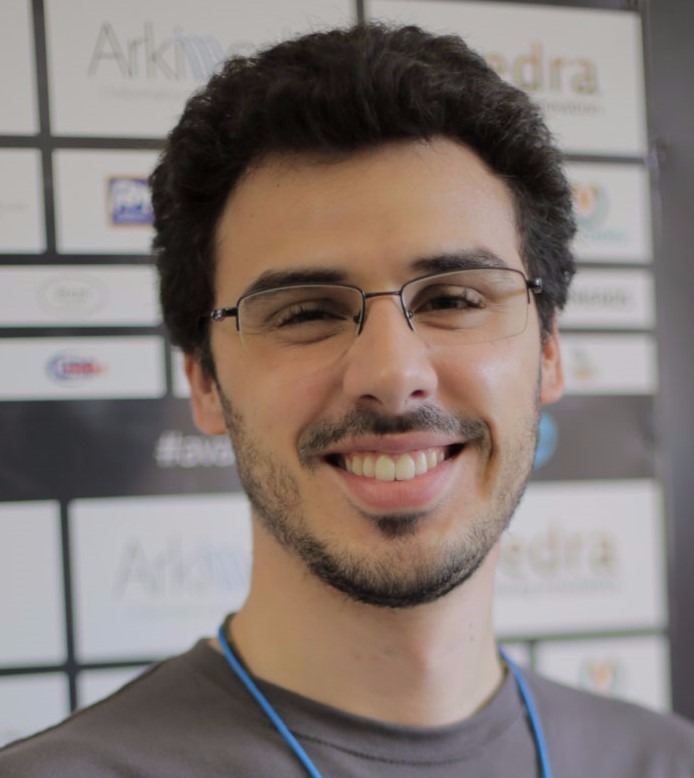
Lorenzo Carnevale is an assistant professor in the Future Computing Research Laboratory at the Department of Mathematics, Computer Science, Physics and Hearth Sciences of the University of Messina. He was research fellow in the same university and he earned my Ph.D. in the Department of Engineering at University of Reggio Calabria in May 2020 under the supervision of Massimo Villari. He led activities related to the technical area for the Horizon 2020 project “FLIWARE” and the Italian FISR “Re-functionalization of the Contemporary”. From 2018 to 2020, he worked as software developer of Humanizing Technologies GmbH in Vienna, one of the most appreciated suppliers of non-industrial robots and robot software worldwide. From 2020, He is an AWS Certified Cloud Practitioner. From 2021, he is authorized to practice as Information Engineer (Italy, Section A). From 2022, he led activities related to artificial intelligence in federated cloud/edge environments for the Horizon Europe TEMA project. From 2023, he led the activitie related to the artificial intelligence optimization for microcontrollers for the Horizon Europe NEUROKIT2E project. He has been teacher of Algorithms and Computational Intelligence classes. I am reviewer of respected Springer, IEEE and Elsevier Journals, member of the CINI InfoLife Laboratory and IFIP Working Group 12.9 about Computational Intelligence, Associate Editor for Frontiers in Robotics and AI and MDPI Machine Learning and Knowledge Extraction, co-chairs of IEEE Workshops (DistInSys, MrICHE, and AI4Health), program chair of UCC 2023 and FLTA 2024 and co-author of more than 50 manuscripts.
Mirco Palese
 IT Programmer adept in both backend and frontend development, boasting three years of hands-on experience. Contributed to EU projects, sucha a Junior Researcher at Engineering S.p.A, particoularly in energy efficiency solutions (Energidrica) and IoT data management (Waterverse). Previous roles include backend and frontend development at IBEE S.r.l.s, enhancing software tools for banking and real estate sectors. Key skills include Java, Python, JavaScript, Node.js, Angular, and Spring Framework. Pursuing a Master’s in Computer Engineering from the University of Bologna, with a Bachelor’s from the University of Salento. Fluent in Italian and English. Passionate about Gnu/Linux, music, and football.
IT Programmer adept in both backend and frontend development, boasting three years of hands-on experience. Contributed to EU projects, sucha a Junior Researcher at Engineering S.p.A, particoularly in energy efficiency solutions (Energidrica) and IoT data management (Waterverse). Previous roles include backend and frontend development at IBEE S.r.l.s, enhancing software tools for banking and real estate sectors. Key skills include Java, Python, JavaScript, Node.js, Angular, and Spring Framework. Pursuing a Master’s in Computer Engineering from the University of Bologna, with a Bachelor’s from the University of Salento. Fluent in Italian and English. Passionate about Gnu/Linux, music, and football.
 Antonio is a Senior researcher and Project Manager at Engineering Ingegneria Informatica S.p.A. He is an expert in ICTs with special skills in areas like Open & eGovernment, Social Innovation, Smart City, Data Protection and Privacy-preserving technologies, Cloud Computing, Architectural Design, Policy making. He has been involved in several European and Italian research projects dealing with several domains (public service for PA, smart mobility, smart environment, energy, FIWARE architecture) as project manager, technical designer, work package and task leader. At present, he is the Project Coordinator of DECIDO project (H202-SC6-GOVERNANCE-2020), he is also involved in SPOTTED project (CEF-TC-2020-2 Public Open Data 2021-2024) and TEMA project (HORIZON-CL4-2022-DATA-01-01) as technical leader.
Antonio is a Senior researcher and Project Manager at Engineering Ingegneria Informatica S.p.A. He is an expert in ICTs with special skills in areas like Open & eGovernment, Social Innovation, Smart City, Data Protection and Privacy-preserving technologies, Cloud Computing, Architectural Design, Policy making. He has been involved in several European and Italian research projects dealing with several domains (public service for PA, smart mobility, smart environment, energy, FIWARE architecture) as project manager, technical designer, work package and task leader. At present, he is the Project Coordinator of DECIDO project (H202-SC6-GOVERNANCE-2020), he is also involved in SPOTTED project (CEF-TC-2020-2 Public Open Data 2021-2024) and TEMA project (HORIZON-CL4-2022-DATA-01-01) as technical leader.
Linkedin: https://www.linkedin.com/in/antoniofilograna/
Twitter: https://twitter.com/afilograna
Matteo Basile
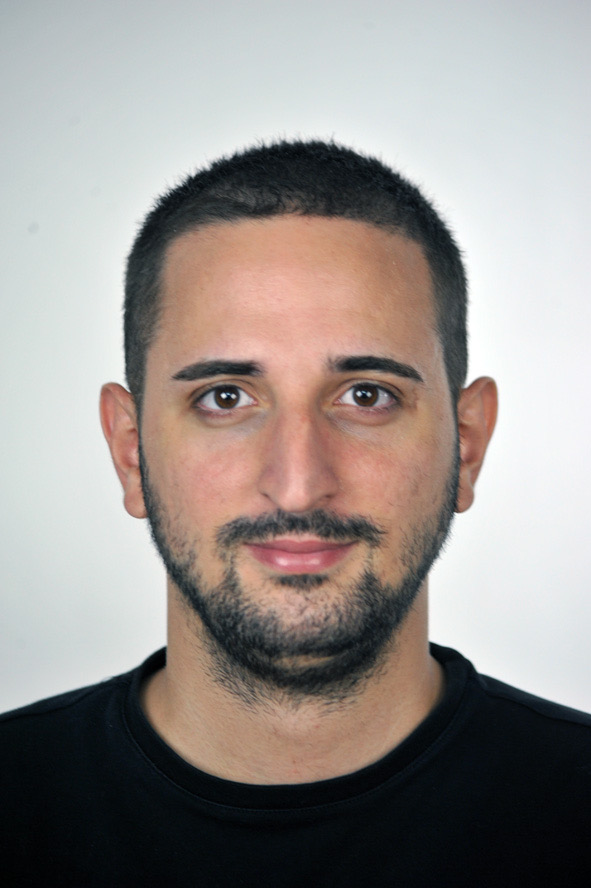 Matteo, a Researcher and Project Manager at Engineering Ingegneria Informatica S.p.A, possesses extensive expertise in ICTs particularly in domains such as Data Management System, GeoSpatial Data, Open-Source Architectural Design and Cloud Computing. Graduated in 2021 with a degree in Computer Engineering from the University of Salento in Lecce, his involvement spans European and Italian research initiatives covering the Water-Data Management System, Digital Twin and Emergency Event Management. In these projects, his main role was as technical coordinator, identifying technical architectures and developing the components. Most architectural blocks are mapped with open-source tools, very often compliant with the FIWARE world (NGSI Context Broker, Digital Enabler and others). He currently plays the role of technical coordinator in the European projects WATERVERSE and PathoCERT, and the role of technical/architectural support in the Italian project GAIA.
Matteo, a Researcher and Project Manager at Engineering Ingegneria Informatica S.p.A, possesses extensive expertise in ICTs particularly in domains such as Data Management System, GeoSpatial Data, Open-Source Architectural Design and Cloud Computing. Graduated in 2021 with a degree in Computer Engineering from the University of Salento in Lecce, his involvement spans European and Italian research initiatives covering the Water-Data Management System, Digital Twin and Emergency Event Management. In these projects, his main role was as technical coordinator, identifying technical architectures and developing the components. Most architectural blocks are mapped with open-source tools, very often compliant with the FIWARE world (NGSI Context Broker, Digital Enabler and others). He currently plays the role of technical coordinator in the European projects WATERVERSE and PathoCERT, and the role of technical/architectural support in the Italian project GAIA.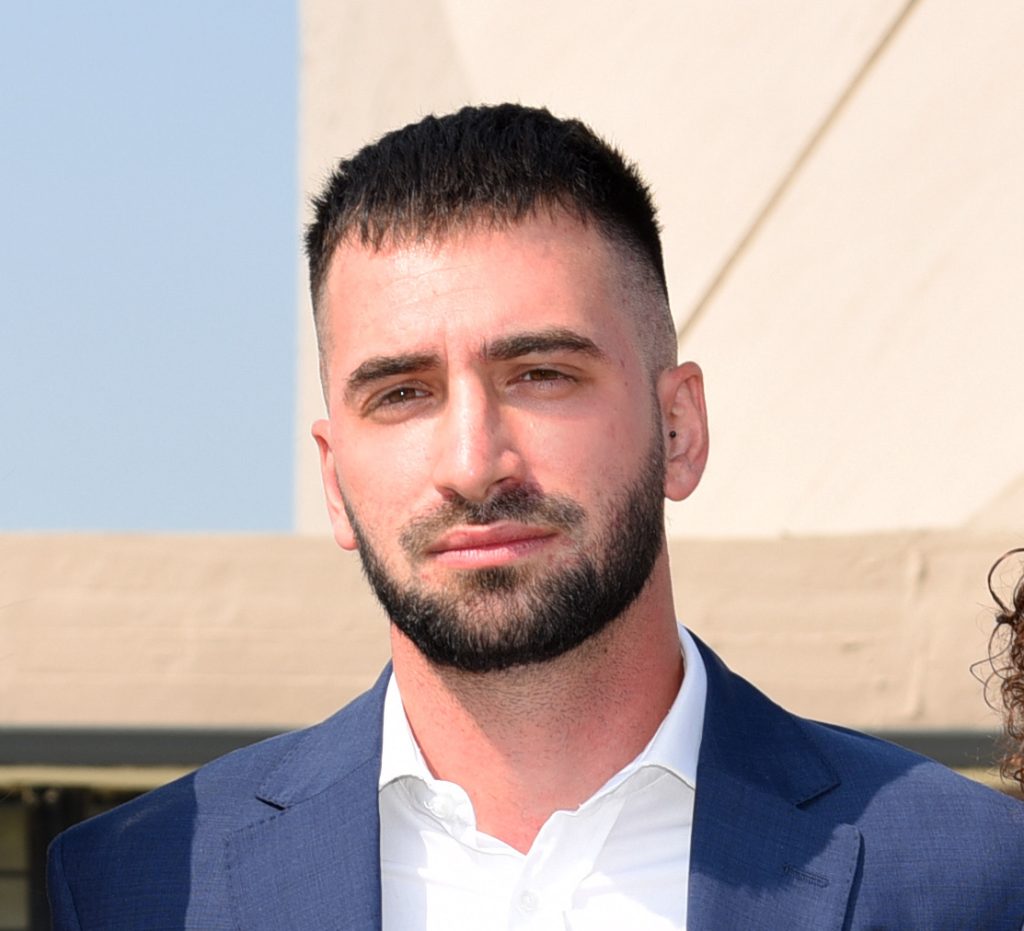 Kaimakamidis Anestis is a graduate of the Department of Electrical and Computer Engineering of Aristotle University of Thessaloniki. He is currently a research assistant in the Artificial Intelligence and Information Analysis laboratory. His research focusses on innovative learning techniques based on Lifelong Learning, Knowledge Distillation, Decentralised Learning and Federated Learning for intelligent systems development.
Kaimakamidis Anestis is a graduate of the Department of Electrical and Computer Engineering of Aristotle University of Thessaloniki. He is currently a research assistant in the Artificial Intelligence and Information Analysis laboratory. His research focusses on innovative learning techniques based on Lifelong Learning, Knowledge Distillation, Decentralised Learning and Federated Learning for intelligent systems development.
